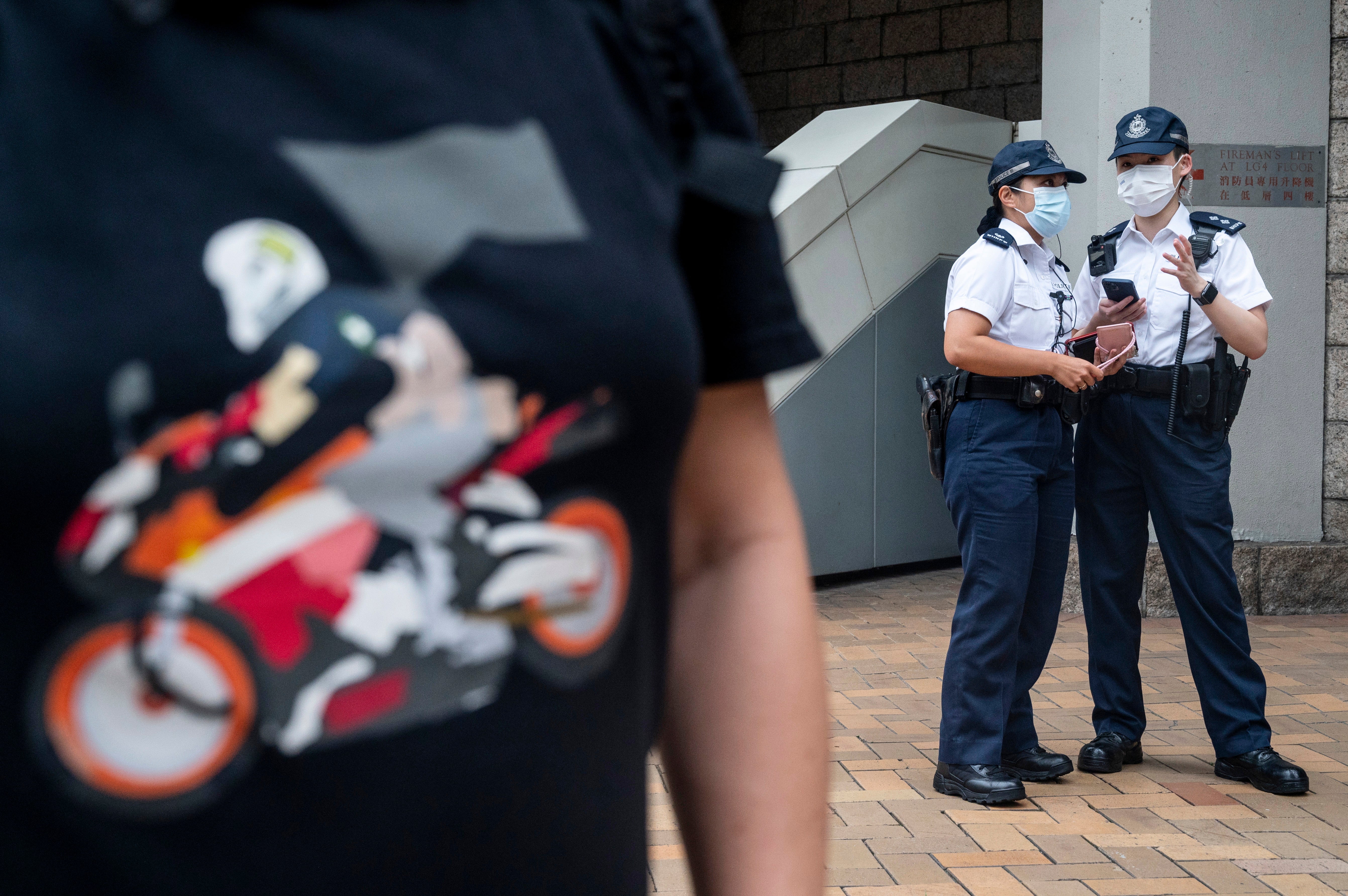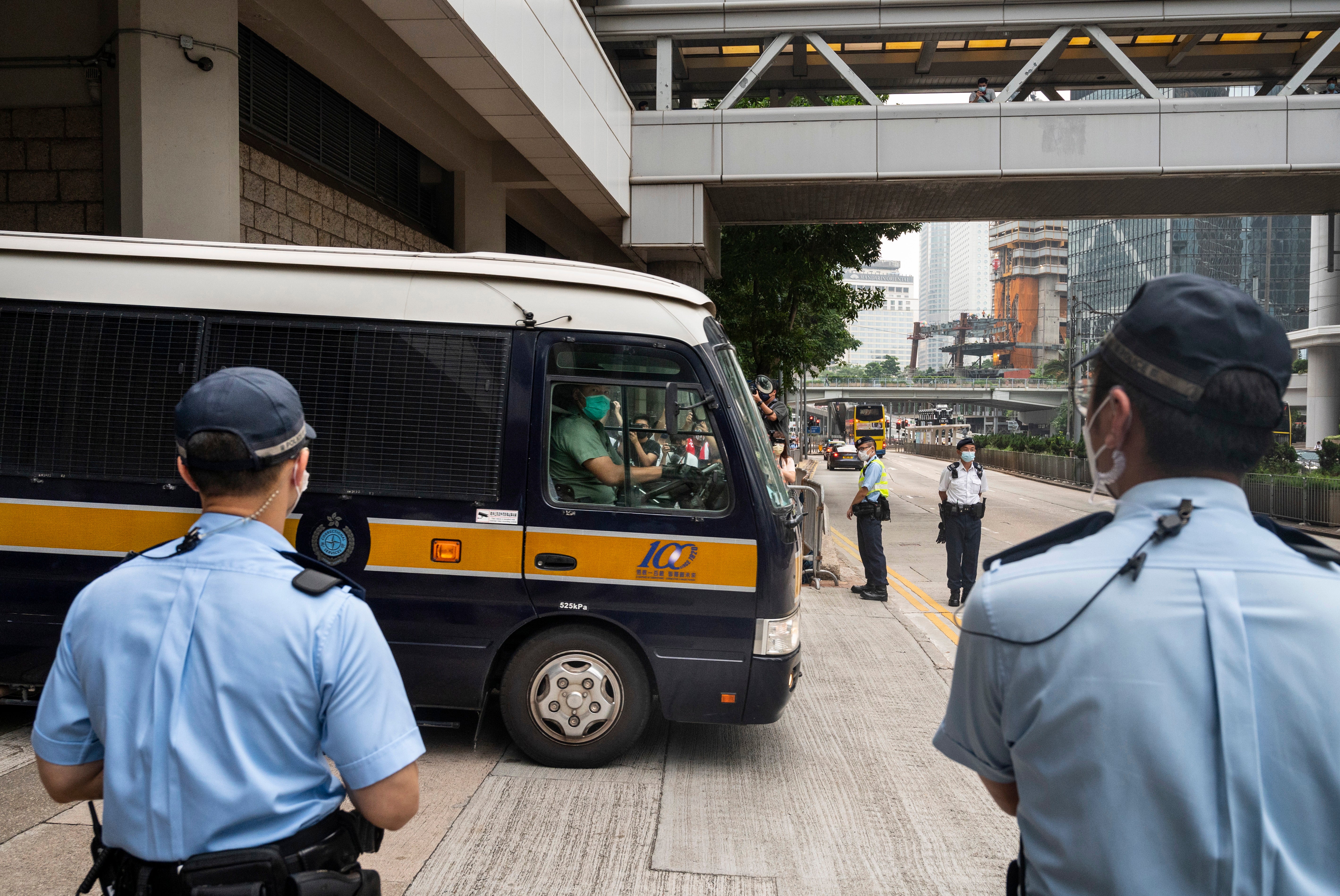‘Speech crime’: Legal experts claim activist ruling sets dangerous precedent for Hong Kong
Tong Ying-kit was found guilty of inciting succession under the National Security Law

Your support helps us to tell the story
From reproductive rights to climate change to Big Tech, The Independent is on the ground when the story is developing. Whether it's investigating the financials of Elon Musk's pro-Trump PAC or producing our latest documentary, 'The A Word', which shines a light on the American women fighting for reproductive rights, we know how important it is to parse out the facts from the messaging.
At such a critical moment in US history, we need reporters on the ground. Your donation allows us to keep sending journalists to speak to both sides of the story.
The Independent is trusted by Americans across the entire political spectrum. And unlike many other quality news outlets, we choose not to lock Americans out of our reporting and analysis with paywalls. We believe quality journalism should be available to everyone, paid for by those who can afford it.
Your support makes all the difference.Experts have warned that the case of Hong Kong activist Tong Ying-kit - who was convicted on Tuesday of inciting secession and terrorist activities under Hong Kong’s controversial National Security Law (NSL) - could set a precedent of criminalising free speech in the city, which used to enjoy a high degree of civil liberties and autonomy.
Eric Lai, a Hong Kong law fellow at the Centre for Asian Law at Georgetown University in the US said that since the court thinks the protest slogan “Liberate Hong Kong, revolution of our time” can be used to incite others to commit secession, it shows that speech crime now exists in Hong Kong.
“The conviction of inciting secession is purely a speech crime and the judges dismissed the importance of the diverse meanings that can be embedded in the protest slogan,” Lai said. “The judges cherry-picked the one interpretation that characterises the slogan as a political agenda for secession.”
During the trial, the prosecutor cited a report from Hong Kong historian Lau Chi-pang and argued that the protest slogan was raised to separate Hong Kong from China. However, the defence lawyer cited data gathered by Hong Kong academic Francis Lee to claim that the phrase is ambiguous and open to interpretations.
On Tuesday, the court said in the particular circumstance where Tong raised a flag bearing the protest slogan, it is capable of inciting others to commit secession.
While Tong could be sentenced to life imprisonment under the NSL, Lai thinks it’s still unclear whether the court will consider his mitigations or not. Mitigation of the case is set for Thursday.
Apart from setting a precedent for speech crime in Hong Kong, Lai thinks the legal proceeding of Tong Ying-kit’s case is a demonstration for how other NSL cases will work without a jury and with judges being designated by the Chief Executive. It also confirms that defendants in NSL cases will likely have to endure lengthy pre-trial detention.
“All these settings become legal precedents as well as a chilling effect on civil society,” he added. “It will cause many people and legal professionals in Hong Kong to wonder whether freedom of expression can still be safeguarded by the common law system.”
Others think the legal proceedings in this trial shows that there is no longer judicial justice in Hong Kong.
“Tong was denied bail since his arrest and he was in custody for around a year,” said Glacier Kwong, a PhD candidate in law at the University of Hamburg and an activist from Hong Kong.
“What we have left is a mere facade that ‘there is still rule of law in Hong Kong’ or ‘common law still exists in Hong Kong,’ the interpretation of the law is now controlled by Beijing,” she added.

Another alarming precedent extending from Tong’s case is that the court is more likely to hand down rulings that are in line with the executive branch’s interpretation of what words and deeds would endanger national security.
“The court’s interpretation of the slogan echoes what the government asserted one year ago, which is that the slogan implies a danger to national security,” said Eric Lai. “Without the scrutiny of a jury trial and with the system of judges being handpicked by the Chief Executive to handle the NSL cases, the outcomes of NSL cases would be less descending from the government’s expectation.”
He thinks this result also means that the rule of law that Hong Kong used to uphold can no longer be sustained under the NSL.
“For NSL cases, the executive branch of the government has more influence over the judiciary because of the pretrial settings, including the designation of judges and power to remove jury trials,” he explained.
Glacier Kwong argues that one lesson that the international community should take away from the first conviction under the NSL is that the Chinese government will not honour the obligations that it has made under legally-binding international treaties. Under the Sino-British Joint Declaration, China promised that Hong Kong will be able to maintain its system and way of life until 2047.
“When China says that they will honour some of their promises and international obligations, this is what will happen,” she told The Independent. “The rest of the world should make sure that the lesson will not repeat again.”
Join our commenting forum
Join thought-provoking conversations, follow other Independent readers and see their replies
Comments